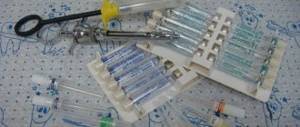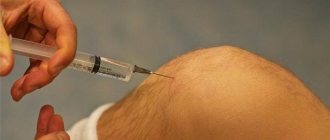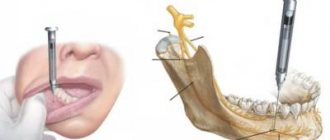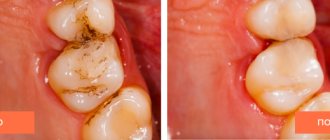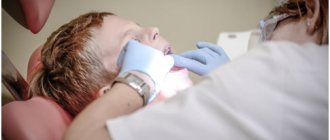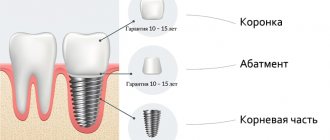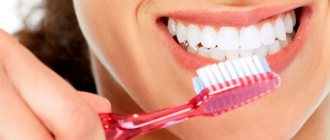16.11.2019
We have all heard more than once horror stories about patients who were completely unaffected by local anesthesia during dental treatment. Who is at risk from this situation and how can you protect yourself from it?
Type of anesthesia for dental treatment
To understand why this situation happens, let’s look at how teeth are anesthetized. There are several types of anesthesia used in dentistry:
- Application, or superficial - the drug is applied externally (without an injection) in a spray, ointment, or gel. The method is used to anesthetize small incisions on the gums, remove loose teeth and to reduce the sensitivity of the mucous membrane before injections;
- Infiltration - with this method, it is not the trunk of the nerve that is anesthetized, but its branches. After the injection, the anesthesia wears off quite quickly. The method is effectively used in the treatment of upper teeth and for performing dental operations on the gums;
- Conduction - with this method, the nerve trunks are anesthetized. The method is used for anesthesia of several elements of the dentition at once, treatment of dental elements of the lower jaw, tooth extraction and complex surgical operations on the dentogingival apparatus;
- Intraligamentous (intraligamentary) - the drug is injected into the space between the enamel and gum. This type of anesthesia is often used in the treatment and extraction of teeth in children. The method gives minimal numbness to the mucous membrane, which becomes sensitive within an hour;
- Intraosseous - an anesthetic drug is injected into the bone. It is used for deep pain relief, for example during operations on the lower jaw or serious extractions. It is carried out in two steps. First, the external tissues are anesthetized, and the next step is to inject the medicine deep into the bone, freezing several elements of the dentition at once.
In dental treatment, these methods are often combined with each other. In most cases, combined anesthesia allows you to achieve optimal results. Now let's look at cases where these methods are ineffective.
Expert advice
So, now let’s look at the unique recommendations of doctors that will help prevent inaction of anesthesia:
- Alcohol should not be taken three days before visiting the doctor. If a trip to a medical facility was not planned, and you drank alcohol the day before, the situation can be resolved with the help of enterosorbents. Even regular activated carbon will do. You need to drink the appropriate dosage for your weight twice with an interval of 1-2 hours.
- If you do not want to take sedatives. Replace them with a soothing tea, mint tea, a warm bath with lavender, etc.
- To normalize your psychological mood, try to think about positive aspects. Good emotions will help you overcome your fear of the dentist and successfully undergo the necessary dental procedures without pain and discomfort.
When is the body to blame?
The low effectiveness of local anesthesia may be due to the following reasons:
- The structural features of the maxillofacial apparatus - in some people, at the injection site, the jaw bone is so thick that it does not allow the anesthetic drug to penetrate to the nerve. The situation often arises during conduction anesthesia of the lower jaw. In this case, an additional injection of an anesthetic drug is given;
- The anesthetic does not reach the nerve well during depulpation. Modern dentistry has learned to deal with this situation with the help of injections that are made not only on the periodontal tissues, but also directly into the pulp;
- Red hair color - surprisingly, but red-haired people, especially curly ones, have a mutation in the body that reduces sensitivity to local anesthesia. Therefore, such patients have to inject an increased dose of painkillers;
- Ehlers-Danlos syndrome is a hereditary disease characterized by increased skin extensibility and joint flexibility. In patients suffering from this pathology, sensitivity to local anesthetics is sharply reduced, so they need to be administered a higher dose of the drug;
- Frequent administration of painkillers - scientists have long come to the conclusion that anesthetics, like any drugs, are addictive. Therefore, if you often treated your teeth, for example, with ultracaine anesthesia and it suddenly stopped “taking” you, you need to carry out anesthesia with a different drug.
Psychological factor
We should also talk about the moral state and psychological state of the patient. People who are very afraid of the dentist are called dentophobes. This category of people comes to the doctor only in advanced cases, when the pain can no longer be endured or it is a purulent process. As soon as the patient crosses the threshold of dentistry, the heart begins to beat faster, the body actively produces adrenaline, as a result of which spasm of the smallest blood vessels occurs. It is for this reason that the anesthetic is ineffective.
To eliminate this factor, dentists recommend starting to take sedatives at night 2-3 days before. A conversation with a doctor, a detailed description of the process, a cozy atmosphere and pleasant music are conducive factors that will help you relax as much as possible.
In what cases is the patient to blame?
The effectiveness of local anesthesia is reduced by the following situations:
- Advanced purulent inflammatory processes. Due to the increased acidity of the environment, such teeth are very difficult to anaesthetize. Therefore, it is better not to wait until an abscess develops or acute pain occurs, but to consult a doctor at the first symptoms of the disease;
- Alcohol – even a small amount of alcohol taken the day before or on the day of treatment reduces the effect of anesthesia. The tissues become insensitive to pain relief, so drinking for courage before visiting the doctor is not the best option. In a state of acute alcoholic intoxication, teeth cannot be treated at all, and experienced alcohol lovers will not take even the most “cool” painkillers;
- Drugs – the situation is the same as when taking alcohol. And it doesn’t matter what the patient used. Even weed, which “dope lovers” consider harmless, can completely block the effect of anesthetics;
- Painkillers and strong sedatives taken the day before treatment or before a dental visit may reduce the effectiveness of anesthetics;
- Critical days - there is an opinion that during this period the teeth are more seriously anesthetized. Therefore, in the absence of urgent indications, it is better to postpone a visit to the dentist;
- Stress – some patients are terrified of the dentist and set themselves up for the failure of anesthesia. As a result, this is what happens. But as soon as the patient relaxes and calms down, the anesthesia begins to take effect. To prevent this from happening, you need to go to the dentist with a positive attitude, and before seeing the doctor, take a couple of tenoten tablets or herbal sedatives (not alcohol-based).
Possible reasons
Note that ineffectiveness of the anesthetic drug is extremely rare. Typically the cause is the following factors:
- According to medical statistics, this list is topped by improperly stored injections or expired injections. This situation can often be encountered in little-known dentists.
- Many people know that the presence of alcohol in the blood can affect the effect of painkillers, or rather, provoke their inaction. If a patient came to the dentist for dental treatment while intoxicated or with a hangover, it is not at all surprising that the drug did not work.
- Insufficient experience of the doctor who uses the wrong drug, too low a dosage, too thin a needle, etc.
- Diseases of the mucous membrane accompanied by swelling. Thus, the medication may not reach the nerve endings. Again, this is only possible with low qualifications of the doctor. An experienced specialist knows all the nuances and anatomical features, so such an oversight is excluded.
If there is pain after dental treatment
In this case, complications are to blame:
- hematoma is a tumor that appears at the injection site. If a large vessel is damaged, it may spill. When an infection occurs, suppuration of the hematoma occurs - a serious complication of dental treatment, life-threatening;
- a piece of the needle broke off, remaining inside the jaw tissue. This complication almost never occurs now, since the disposable instrument practically does not break. If this happens, it is possible that the clinic you went to uses a cheap medical instrument. Think about whether it is worth getting treatment in such a place;
- temporary paresis of the facial nerve - the complication goes away on its own without treatment;
- allergic reaction - usually occurs when a new drug is first administered. To avoid getting into such a dangerous situation, tell your doctor about your allergic predisposition.
In most cases, all problems with anesthesia can be easily resolved. To do this, additional injections are given or treatment is postponed to another day.
Category: Tooth extraction Published by Mister stomatolog
Reasons for the ineffectiveness of local anesthesia in acute inflammatory conditions
The effectiveness of anesthetics increases in an alkaline environment and decreases in an acidic environment. This is because anesthetics are used in the form of salts, and their anesthetic properties depend on the free bases. In turn, free bases can be formed only in an alkaline or neutral environment, while in an acidic environment (pH < 7) the release of these bases is practically impossible (anesthesia is either sharply weakened or absent).
The most common factors causing the ineffectiveness of local anesthesia in acute inflammatory conditions include:
- increased blood circulation in the area of inflammation (leads to rapid removal of anesthetics in anesthetic tissues)
- decreased tissue pH at the injection site
- morphological changes that occur in the axon of a nerve cell in the area of inflammation
- the action of prostaglandins and inflammatory mediators directly suppress the effect of the anesthetic on the nerve fiber.
Injection of an anesthetic into tissue with low pH (< 7), that is, in the presence of inflammatory conditions in acute pulpitis, periodontitis, osteomyelitis, prevents the diffusion of the free base and, of course, not only leads to an ineffective blockade, but also often causes an accompanying infection. Therefore, to treat a carious cavity in a tooth (pulpitis, periodontitis), it is advisable to use local drugs such as anestopulp, pulperil, polymyxin (Septodont), which relieve this process. These products are injected on a cotton ball into the carious cavity and covered with a temporary sealed bandage. But still, the most optimal option for solving the problem of pain relief in acute inflammatory conditions is the use of conduction blockade .
What affects the duration of the anesthetic effect?
The same drug may work differently in different people. For example, for some the analgesic effect disappears in one hour, while for others it lasts two or even three hours. What affects the duration of anesthesia, besides the pharmacological characteristics of the drug itself? There are several fundamental factors:
- The presence of inflammation in the anesthetized area. For example, after the removal of a wisdom tooth that was painful, the rehabilitation period is always delayed. The fact is that the active compounds of anesthetics have an alkaline environment, and in a localized inflammatory focus it is acidic. The combination of the two media causes neutralization of the alkaline composition of the drug. Because of this, the pain relief effect either does not develop at all or disappears very quickly. With advanced inflammation, it is very important to correctly calculate the optimal amount of pain medication so that the patient does not feel acute pain during treatment.
- The inclusion of components in the administered drug that promote spasm of blood vessels. Such substances make the anesthetic more effective and increase the duration of its action.
- Patient's age. It is more difficult for older people to obtain pain relief, and the anesthetic effect lasts longer.
- The presence of diseases of internal organs. Metabolites of dental drugs are eliminated from the body due to the work of the kidneys and liver. If there are diseases of these organs, anesthesia lasts longer.
- Experience and accuracy of the dentist. When giving an injection, the doctor must follow the injection technique and accurately calculate the dose. Any mistake makes the result of using an anesthetic unpredictable.
Medicines that are most often used in the dental office
If you need to numb a tooth, the doctor may use different drugs. The list of the most popular includes:
- Novocaine. Has a short period of action.
- Lidocaine and products containing articaine. Provides a medium-duration analgesic effect.
- Bupivacaine, Hirocaine, Ropivacaine. They have a long period of action.
The doctor determines which drug to choose taking into account the complexity of the upcoming treatment procedures. It is important that the patient is not allergic to the prescribed anesthetic.
What to do to quickly forget about dental intervention
Very often, upon returning home, the patient continues to feel numbness in part of the jaw. This condition can cause discomfort and even mild aching pain. In order for tissue sensitivity to be restored as quickly as possible, the following rules should be followed:
- On the eve of planned dental procedures, avoid drinking alcohol , fatty and heavy foods. If a specialist recommends taking any medications, it is important to follow his prescription.
- In the case of treating caries , removing tartar, grinding down the top layer of enamel under a crown, it is permissible to massage the gums. You can also drink warm tea or heated water. These simple methods will increase local blood circulation and create conditions for the speedy release of anesthesia. But, if anesthesia was administered before tooth extraction, there should be no talk of any self-massage - touching the hole with your hands is strictly prohibited. Otherwise, you can damage the blood clot that protects the wound from the penetration of bacteria and germs. This will lead to severe inflammation and bleeding.
Don't be alarmed if the anesthetic continues to work for up to six hours. The situation will normalize on its own. If the numbness does not go away longer, this is a reason to consult a dentist again.
Content:
- Methods used in dental practice
- Medicines that are most often used in the dental office
- What affects the duration of the anesthetic effect?
- What to do to quickly forget about dental intervention
- After what time can you eat?
Most people are afraid to have their teeth treated because they are afraid of pain.
It seems to them that any medical manipulation will cause them serious discomfort. Fortunately, the days of painful dental procedures are far behind us. Today, using highly effective anesthetics, doctors manage to make even the most complex procedures comfortable for the patient and completely painless. Meanwhile, some clients have a question about how long the anesthesia wears off after tooth extraction or pulpitis treatment. They are embarrassed by a long-lasting feeling of numbness. Let's consider this issue in more detail.
Methods used in dental practice
How long it takes for the anesthesia effect to disappear depends directly on the method of anesthesia used. The sensitivity of tissues is restored most quickly when using an application. The doctor applies a special gel to the area of upcoming manipulations, which “freezes” for about fifteen minutes.
If the anesthetic medication was administered using a syringe and needle, the area will remain numb for up to one to three hours. The exact time is determined by the location of the treated area, the dose and type of drug.
